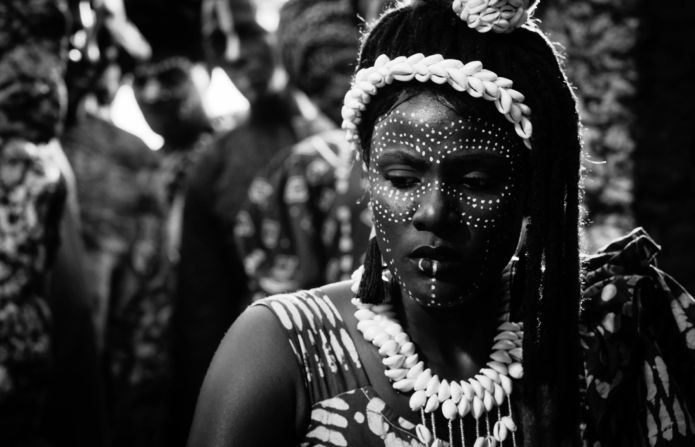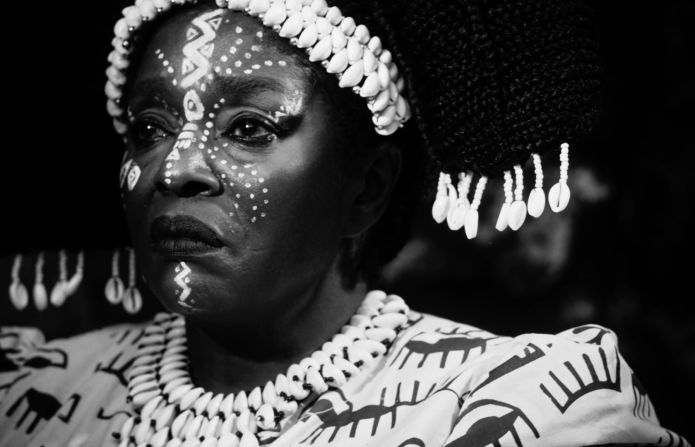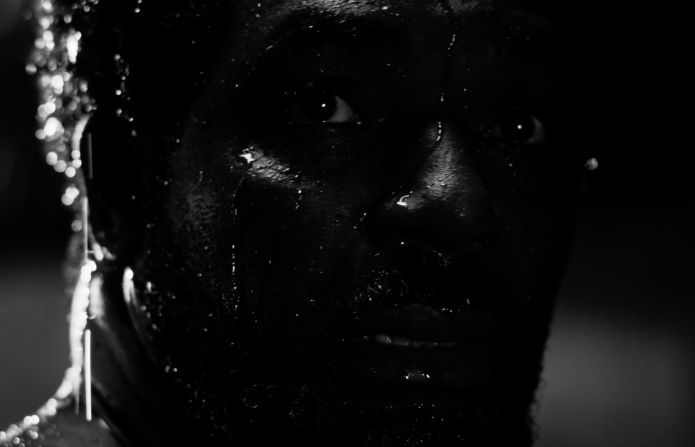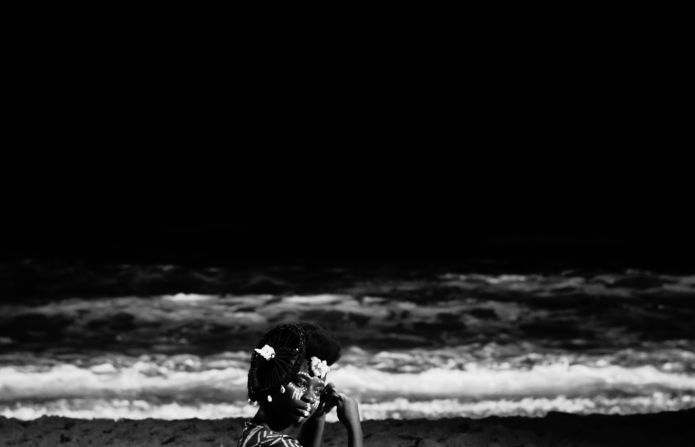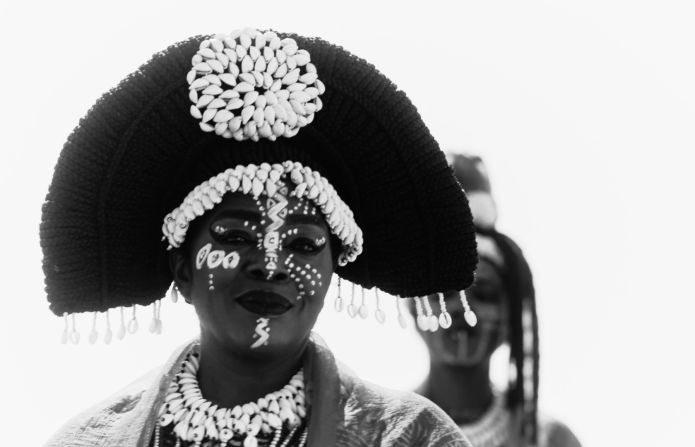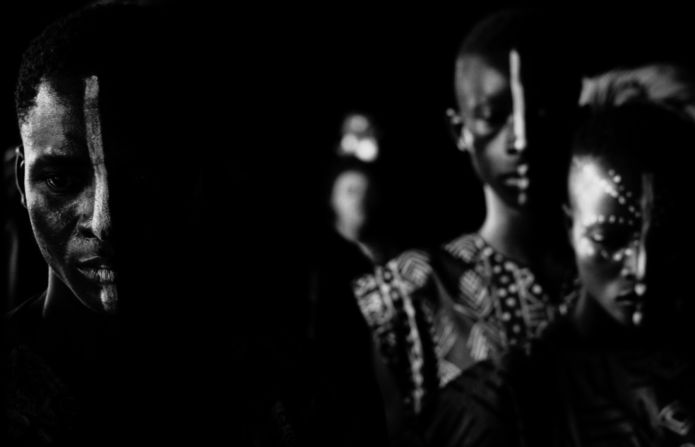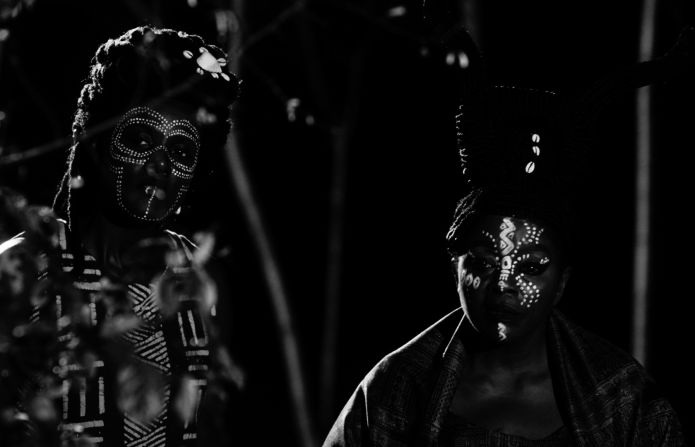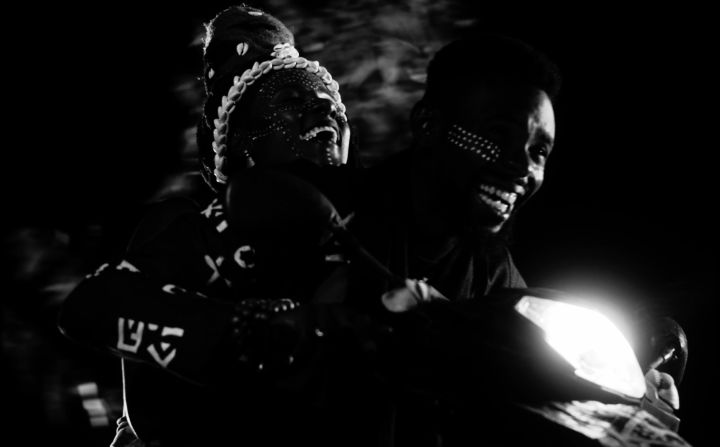An onyx sea, white rippled through inky black, foams away in the moonlight. Grasping for sand it whispers and burbles, as if talking to the shore.
On the beach two women stand, deep in discussion about the unseen woman in the water. Her name is Mami Wata, a goddess with whom their community is falling out of faith. A boy has died and she did not intervene; modern medicine might have saved him. This crisis has consequences for everyone, especially these two, the daughters of the village’s religious intermediary. Lives and livelihoods are at stake. Should they believe? It is both a spiritual and pragmatic question. They argue; meanwhile the ocean and its answers go unheard.
Last month, “Mami Wata,” the latest movie by writer-director CJ “Fiery” Obasi, became the first feature by a Nigeria-based filmmaker to premiere at the Sundance Film Festival. In the mountains of Park City, Utah, it set about defying expectations surrounding Nigerian cinema to startling effect, in what could be the start of a long and significant journey for the film.
Though set in the present day, “Mami Wata” feels as timeless as its themes. Shot in vivid black and white, it’s a parable about Iyi, a fictional village in West Africa, where traditions have been maintained as the villages around it have moved on. Its arthouse sensibilities are a world away from the populist appeal of many Nollywood films – films that have dominated the domestic box office and become the prevailing image abroad of Nigeria’s cinema. Describing the preconceptions around Nigerian cinema as “harmful,” Obasi said he faced rejection and prejudice from inside and outside of his country, resorting to film festival labs to develop the project and scouring the globe for funding.
Filming finally took place in the neighboring country of Benin in January 2021 with an international crew and a pan-African cast led by Ivorian Evelyn Ily Juhen. Their efforts appear to have paid off. At Sundance, Lílis Soares, “Mami Wata’s” Brazilian director of photography, won the prize for best cinematography.
Next stop: The Pan-African Film & TV Festival of Ouagadougou, commonly known as FESPACO, Africa’s biggest film festival held in Burkina Faso in February and March, where the movie will receive its continental debut. A cinematic release across Africa is planned, while the film is still looking to secure distribution in the US.
During Sundance, Obasi logged into a video call to discuss the making and meaning of his stark and beautiful film.
The following interview has been edited for length and clarity.
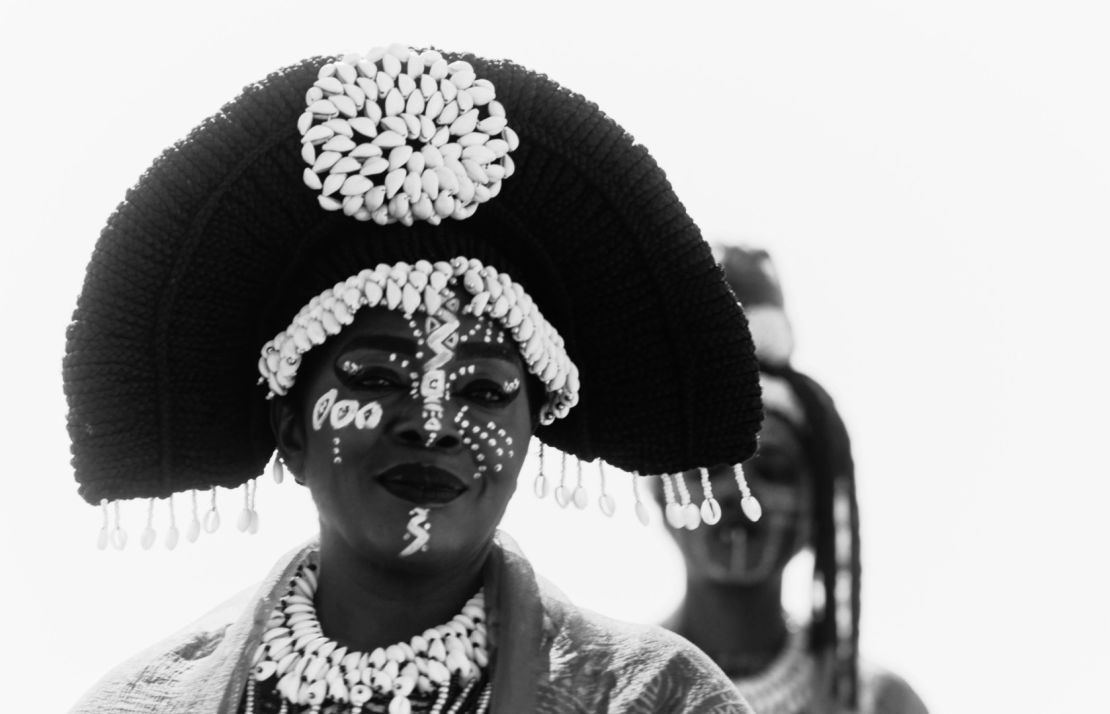
CNN: “Mami Wata” is the first feature by a Nigeria-based filmmaker to premiere at Sundance. What does that mean to you?
Obasi: It means everything. I’ve always preached that beyond Nollywood, we have the potential to create new forms of cinematic expressions – beyond what is expected or beyond what is established as ‘Nigerian film culture.’ With the selection at Sundance, it’s a validation of all of that.
For people who may not be aware of Mami Wata, can you explain who she is and the role she plays in some people’s lives?
That’s such a deep question to dive into. Mami Wata is the mermaid goddess of West Africa. She transcends West Africa – all across Africa, the Americas, the Caribbean and so on – but the specifics of the belief system around Mami Wata is rooted in West African culture and spirituality. She is very much a part of the everyday life of traditions, spiritual belief systems. With the advent of Christianity and Islam, a lot of that cultural tradition has been eroded. But there are still core followers that exist to this very day, and it is as much a religion as any other form of religion that exists around the world.
How did you land on the film’s aesthetic?
I always knew I wanted to make a hyper-stylized film. I’ve never been a believer in the terminology, ‘style over substance.’ I think that style should be rooted in substance. All of my favorite filmmakers certainly believe that, from Akira Kurosawa to David Lynch to Alejandro Jodorowsky to Martin Scorsese. All of these people have one thing in common: their films are highly stylized, yet that doesn’t in any way diminish the emotional power of their cinema.
I also wanted to make a story that was rooted in emotion and in a very earthy texture – even though it is a fantasy film. But I didn’t want something that was so above the humane, that it felt so out of touch. Black and white was key to achieving that. You’re specifically telling the audience what you want them to key in on, even if it’s on a subconscious level.
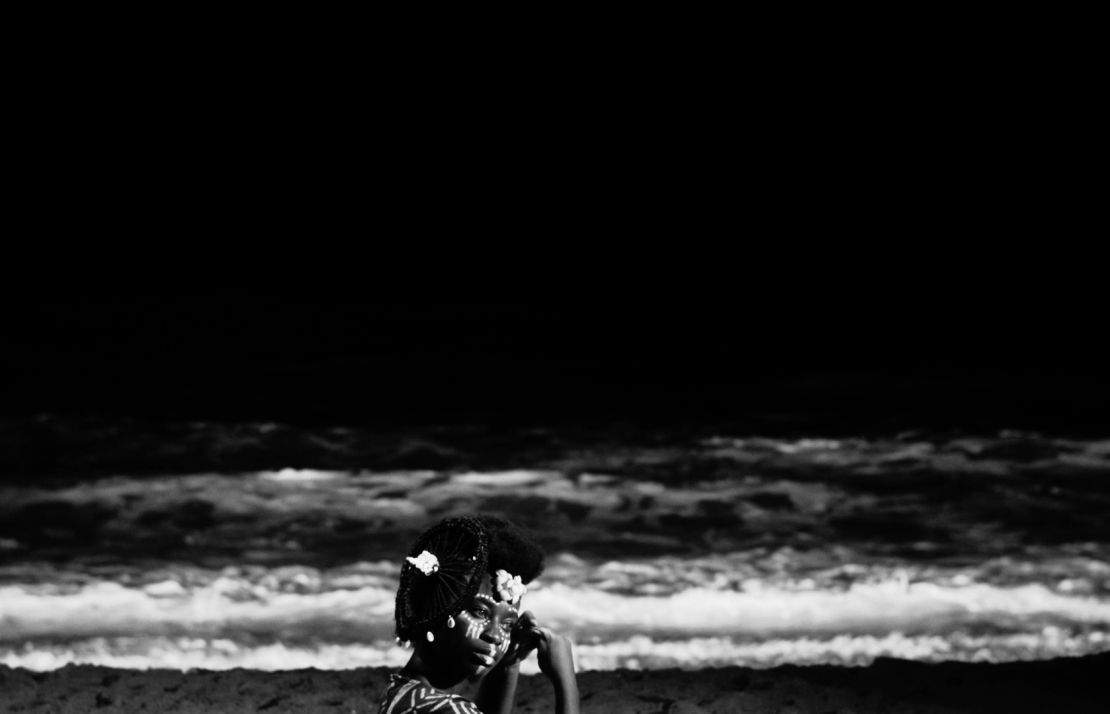
I think many people have preconceptions about filmmaking in Nigeria, and about the films that Nigeria produces. And I think some of it is perhaps limiting and unhelpful.
Absolutely.
Are you dispelling some of these preconceptions?
I hope so. I think it’s been harmful overall to the Nigerian narrative that as soon as you hear the word ‘Nigeria,’ only a specific kind of filmmaking comes to mind. I think this has done us more harm than good in the long run. In the early stages of the development, we traveled to several countries, through (film festival development) labs and workshops. Being introduced as a Nigerian filmmaker, or someone making a movie called ‘Mami Wata’ from Nigeria, one thing we would always face was people already having an idea of what they think you’re about to do with that. It was something we had to battle constantly. It’s really sad if you think about it, because other African countries don’t have that issue. If I were from Senegal, Ivory Coast, Mali … But Nigeria, (they have) a very specific idea of what it is that we do. I’ve always wrestled against that.
How do you expect the film will be received in Nigeria?
I’m trying to manage my expectations. There’s maybe more curiosity than anticipation. Because our people, to put it nicely, we’re very critical. The attitude would be, ‘let’s see that Nigerian film that made it to Sundance.’ I don’t mind that. I think as long as people come out and see it, perhaps people will be inspired by it, perhaps people will see themselves in it. I like to take the good with the bad and I do believe that, ultimately, this will help the cinema.
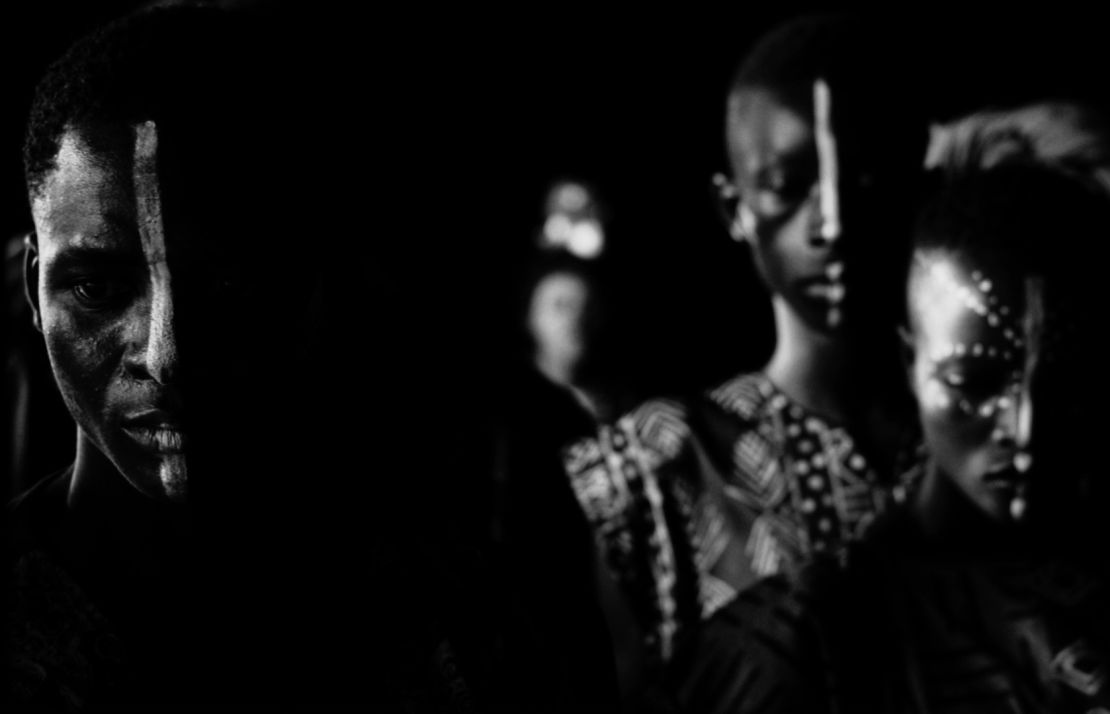
The film encourages a healthy debate around gender politics and more broadly, tradition versus reform. It concludes that there can be progress through the reclamation of tradition as well. Is that something you also feel yourself?
I’ve always been an advocate that tradition shouldn’t be defined as backwardness. Just like modernity isn’t always positive and doesn’t necessarily equal progress. Those were the two opposites that are at war in the entire film. It has a conclusion that elevates the conversation about balance: How do we find harmony? And it tries to give an answer, because I don’t really believe in, ‘Go find the answer yourself.’ You might agree, you might not. I think that conversation is healthy. But as a filmmaker, I believe that I have a responsibility to try and offer some kind of an answer.
We’re seeing more African folklore in films now (including Philippe Laçote’s award-winning “Night of the Kings” and last year’s Sundance winner “Nanny” by Nikyatu Jusu) but in the grand scheme of things there’s still a ton that haven’t made it to screens yet. What is the cinematic community missing out on?
They’re missing out on so much. They’re missing out on perspective. They’re missing out on life – on the spice of life that that can really mean something to humanity. All the things that we’re wrestling with today, they have been addressed in our folktales for thousands of years. And even just in terms of the cinematic conversation, where is world cinema today? What’s the next step? Where are we taking it? I think African storytelling has the answer to that.

